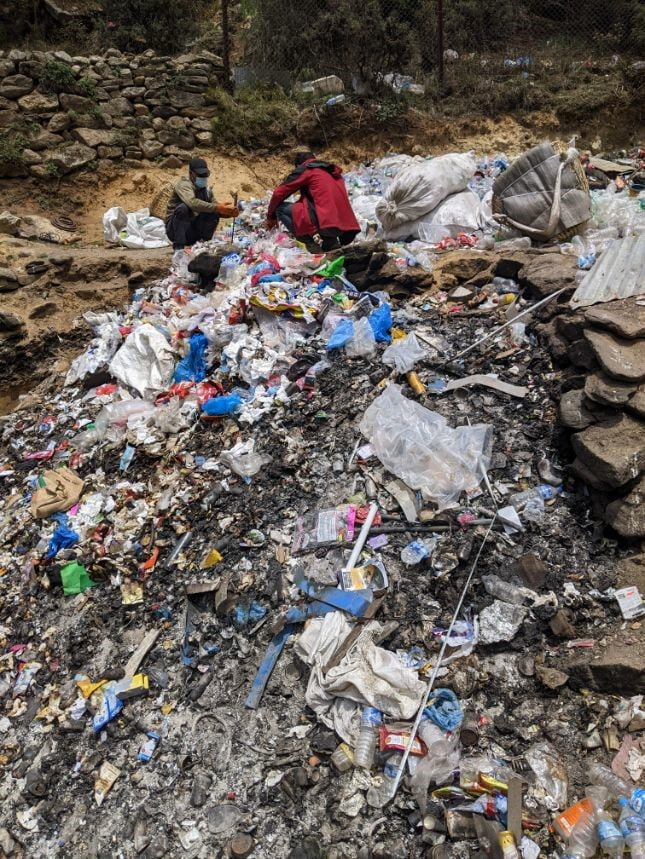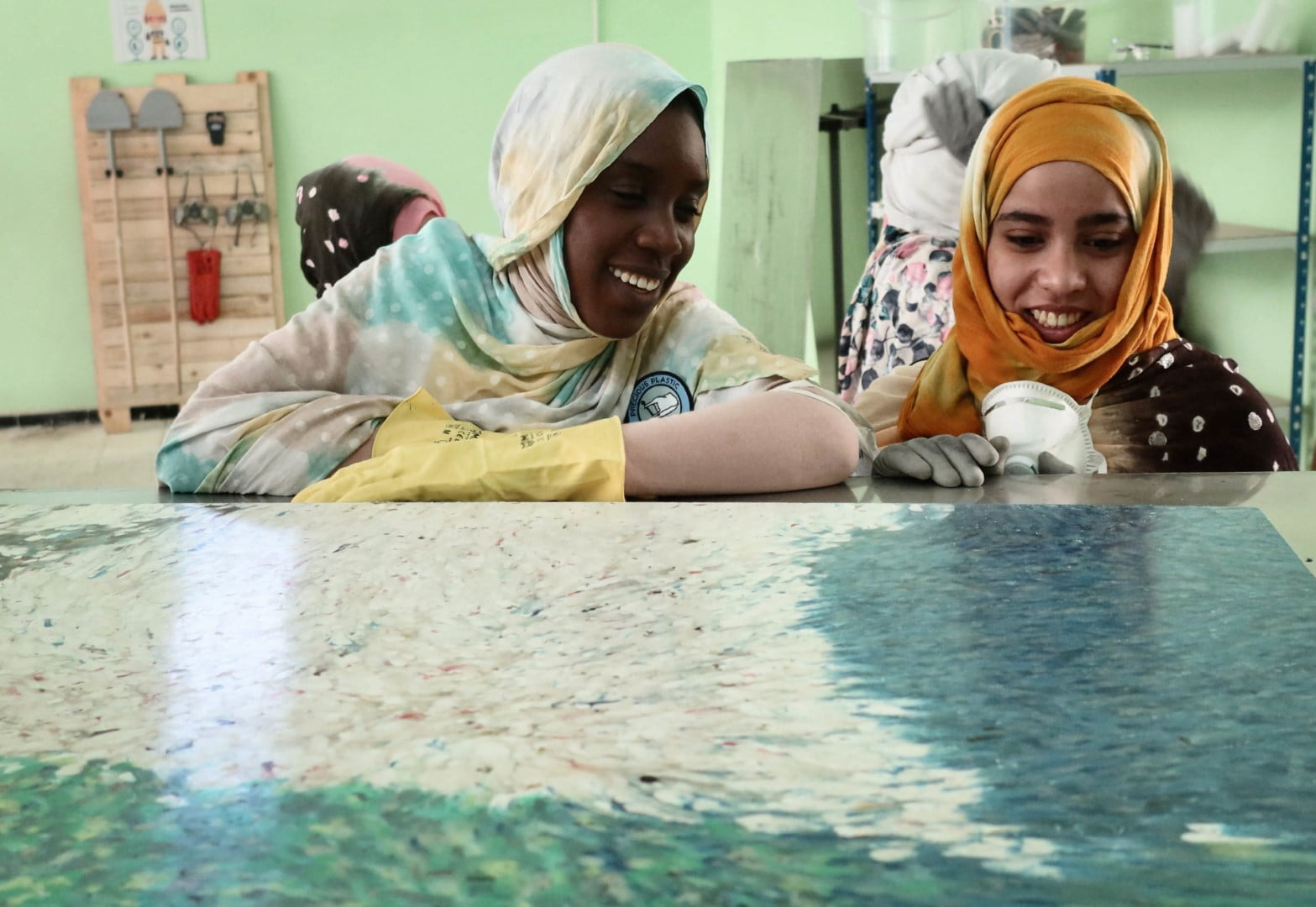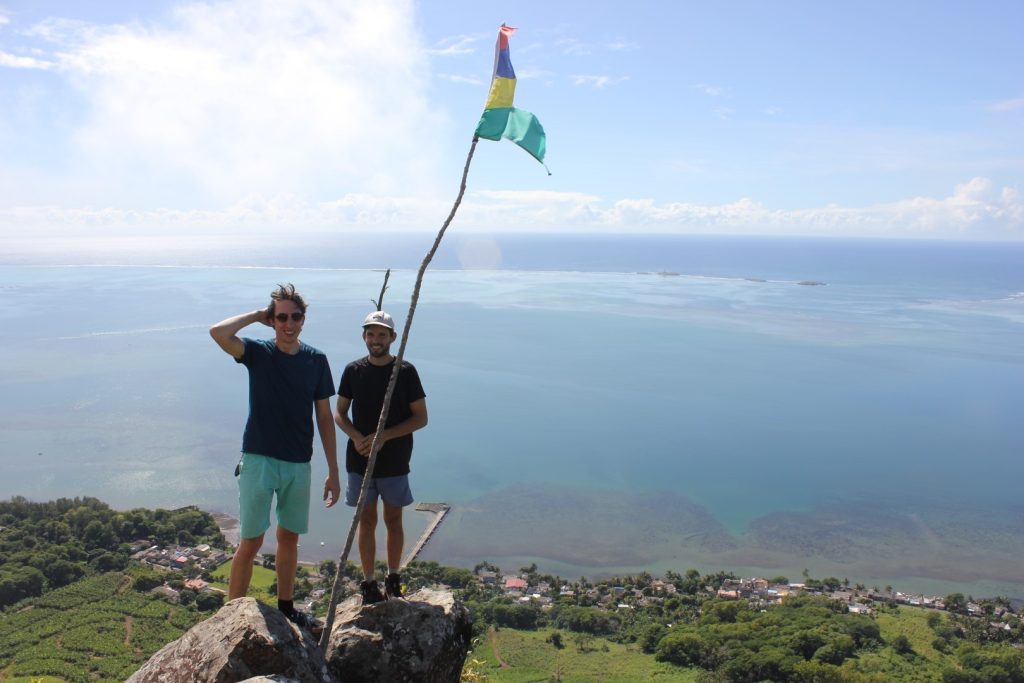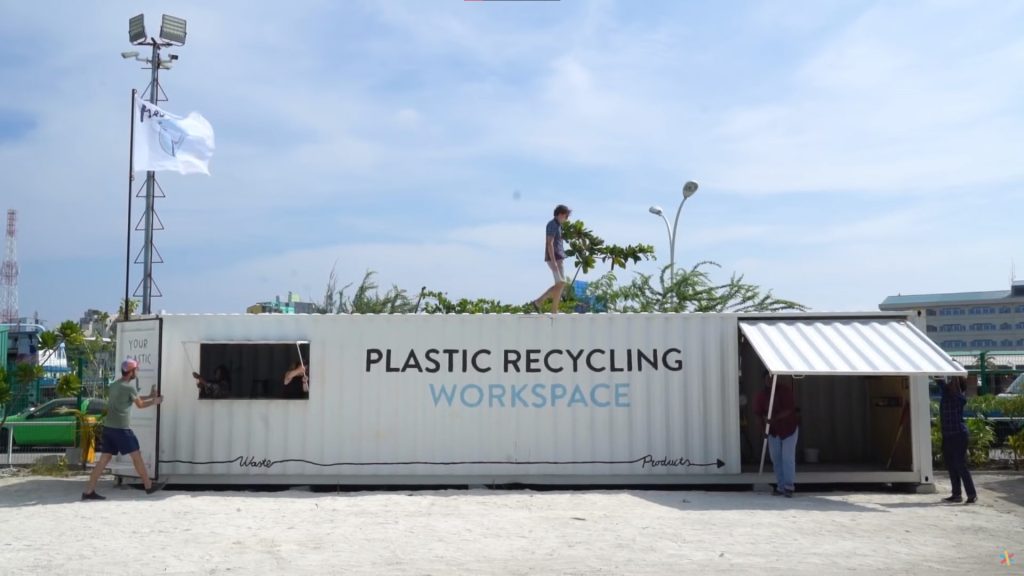Himalyas (2022)
A system to remove, process, and transform waste from the Everest region.

IN COLLAB WITH SAGARMATHA NEXT
The majestic beauty of Sagarmatha National Park in Nepal, home of Mount Everest, draws over 80,000 visitors annually, offering tourists an unforgettable experience in nature. While this has brought considerable socio-economic benefits to the area, it has also resulted in tragic amounts of waste and pressure on the region’s delicate ecosystem during the last few decades. Sagarmatha Next and Super Local developed the “Carry me back” program and the “From the Himalayas” product collection. These initiatives offer sustainable solutions to remove, process, and transform waste from the Everest region.
Once waste is transported via the “Carry me back” program to Kathmandu, it is processed. While some materials, like PET bottles and aluminum cans, are processed on a more industrial scale, for the processing of HDPE water bottle caps, Super Local was tasked with converting this waste material into unique products that tourists can buy both averting waste and financing Sagarmatha Next’s important work. Super Local developed an end-to-end process including setting up an appropriate plastics workspace, building 2 hand-operated plastic injection machines utilizing the open-source blueprints of Precious Plastic, and training the local staff through hands-on support during the first weeks of production.

Algeria (2021)
Building a recycling center in the Sahrawi refugee camps.
IN COLLAB WITH UNHCR
The Sahrawi Refugee Camps are in the Tindouf Province of Algeria and were set up during 1975-76 for the Sahrawi people fleeing Moroccan forces. These camps are still open today, with many generations born in the camps and an estimated 100,00 people living there. Due to being in the middle of the Sahara Desert, the refugees rely on humanitarian aid, with many water and food resources being transported into the camps. This creates a large byproduct of waste which is collected by a garbage truck and dumped at a makeshift landfill, outside the camps, where it is burned to be contained.
In November 2021, Precious Plastic, the UNHCR and other groups teamed up to make one of the largest Precious Plastic workspaces in the world. This workspace would employ many of the refugees to recycle waste into useful products for the camps and surrounding communities. Using 5 shredders, 2 sheetpress systems, an extrusion machine and a washing system, the local team can recycle plastic into almost anything. Creating a self-sustaining circular economy to empower the refugees.
Mauritius (2020)
Helping the local community of Blue Bay kickoff plastic recycling.

IN COLLAB WITH INTERNATIONAL OLYMPIC COMMITTEE
Mauritius has one of the most beautiful beaches I have ever seen. It is amazing to stay at the beach for days, but it is also in danger. From all sides, plastic is flowing in and ending up in between the coral and on the beaches themselves. Valery organizes beach cleanups but once the plastic is collected, the only option is the landfill.
On the one hand, kilograms of plastic are saved from the ocean, on the other hand, the plastic is moved to the second worst place, the landfill. After a quick online search, Valery found Precious Plastic, the place where plastic recycling is made simple, for anyone!
Due to the limited technical knowledge of Valery himself, he assembled a team of volunteers to set up such a workspace. To help them and to coordinate this whole process, I joined!

Maldives (2019)
Turning ocean plastic into products in Male, Maldives.
IN COLLAB WITH PARLEY FOR THE OCEANS
In collaboration with Parley for the Oceans, we transformed ocean plastic into Precious Plastic in Male, the Maldives’ capital. Despite its small population (around 115,000), the city grapples with a significant waste issue, largely comprising imported plastic and styrofoam. To address this, we established a plastic recycling workspace in a shipping container, educating locals on recycling and showcasing the conversion of plastic waste into valuable items. The container now functions as both a recycling workspace and a research center for studying ocean plastic.
Teams from Precious Plastic and Parley for the Oceans conduct research and experimentation within, aiming to turn ocean plastic into a valuable material. Our research explored the impact of extended sun exposure on plastic recyclability, including collecting ocean plastic samples and developing methods for recycling plastic textiles. Notably, our findings challenged the prevailing notion that sun-exposed plastic permanently loses its durability.